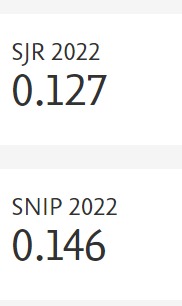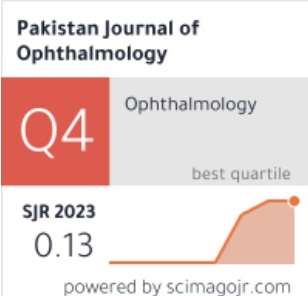Ocular Emergencies in a Rural Hospital: A 5 Year Retrospective Clinical Audit
DOI:
https://doi.org/10.36351/pjo.v30i2.283Abstract
Purpose: To study the magnitude of the ocular emergencies and to explain the health professional about its prevention and better management.
Material and Methods: This retrospective clinical audit was conducted over a period of 5 years from 1st January 2008 to 31st December 2012 at the department of Ophthalmology, Burdwan Medical College and Hospital, Burdwan, West Bengal. A comprehensive review of the record available for ocular emergencies was carried out.
Results: Total 5674 patients were attended admitted in the Ophthalmology emergency. Male and female were 3764 and 1910 respectively. Male: Female ratio was 1.97:1. Traumatic ocular emergencies were 4071 (71.75%) and non-traumatic ocular emergencies were 1603 (28.25%). Most common cause of traumatic ocular emergency was extra-ocular foreign body 1848 (45.40%) followed by Open globe injury 976 (23.97%). In traumatic ocular emergencies male and female were 3044 (74.77%) and 1027 (25.22%) respectively. Most common presented age group was third and fourth decade. Among the open globe injury (n=976) 825 (84.53%) episodes were due to accidents. Common source of open globe injury was due to stone 450 (54.55%). Corneal ulcer 341 (21.27%) and acute glaucomas 311 (19.4%) were the leading causes of non-traumatic group. Minor ocular injuries were managed as day care basis. Open globe ocular injuries were managed with primary repair. Others ocular emergencies were given conservative medications.
Conclusions: Increased public health awareness will prevent inadvertent incidences of ocular emergencies in the community. Early intervention of all ocular morbidities in the community will help reduce the burden of non-traumatic ocular emergencies.






